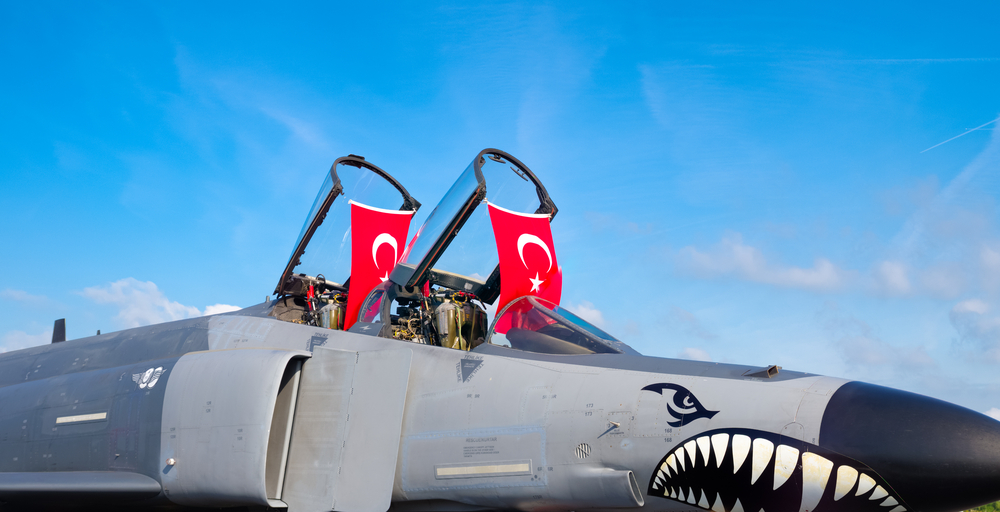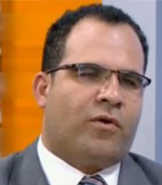Military industries play a distinctive role in a country’s economic diplomacy and provide a meeting point between its foreign policy orientation and the deployment of its military capabilities, in a trend that has become known as the militarization of foreign policy. This perspective might be considered a suitable approach to examining the trajectory of the Turkish military industry, in view of political and economic tensions that have led Turkey to prioritize military production. This was reflected in President Recep Tayyib Erdogan’s decision in 2018, to create a new structure to manage Turkish military industries, and to bring them under the direct control of the Presidency.
A rising industry
Turkey has been able to successfully build a large defense industry over the last two decades. This has been reflected in international reports on arms sales, as revenues from Turkish military exports have increased five-fold between 2000 and 2020. The number of defense programs have increased from 62-700 during the same period, while the number of Aerospace and Defense companies have increased from 56 to 1500. The value of these programs has increased from 5.5 billion dollars to 75 billion dollars, and the value of military exports has risen from 248 million dollars to 3 billion dollars.
On the global competitive rankings for defense industries, the Top 100 list for 2020 includes 7 Turkish defense companies , including: Havelsan – FNSS – STM – Roketsan – BMC – Turkish Aerospace – Aselsan). Only five Turkish companies had been listed in 2019.Turkey also now ranks 14th on the globe in the list of weapons sales with a total of 1% of the global arms market.
Turkey has overcome the downturn in military exports during 2020, during which they contracted by 16.8%, due to the COVID-19 pandemic, the reduction in arms sales globally and the slowing of the Turkish economy as a whole. However, growth resumed in the 1st quarter of 2021. According to the Turkish Export Association (TIM), the exports of the Aerospace and Defense industries increased by 3.7% in January 2021, 34.1% in February, 74.6% in March, and 47.8% in April.
Possible Impediments to Growth
Despite the positive expansion of the Turkish military industry, it faces a number of issues which could become impediments to future development, these include:
- Economic Slowdown: the pessimism that is surrounding the Turkish economy due to the freefall of the Turkish Lira, has had a negative impact on the outlook of this Industry. It is true that military exports do not reflect these concerns, in fact they might act as a potential cushion to soften the continued fall of the Lira, which is mainly due to the reduced costs of exporting. However, a major issue is that some components in the Turkish Military Industry are imported from abroad. Economic analysts predict that there needs to be a major plan to save the economy to prevent further losses being incurred. This is linked to Turkey’s recent attempts to reduce tensions in the region.
- American Economic Sanctions: the US has put pressure on Turkey through sanctions due to its ongoing hostile foreign policy, specifically because of their military adventures in the region (Syria, Iraq, Libya, and Azerbaijan), and due to their procurement of Russian military hardware such as the S-400 and the SU-35 fighter.
However, there is a great deal of debate on this issue, and it can be argued that Turkey has not been acting entirely outside of the NATO alliance’s interests. In Iraq, for example, Turkey’s campaign against the PKK which has led to tensions, but there has been widespread praise from its NATO allies regarding its’ actions against the Islamic State in Syria and Iraq. While there are concerns regarding Turkey’s interventions in Syria and Libya, it has gained some positive points by helping to balance the power in both countries in the face of Russian intervention.
- Engine and Long-Range Air Defense Systems: one of the biggest obstacles that faces the Turkish Defense Industry is the fact that they lack the technology necessary to completely produce their own engines. Although US sanctions did not directly impact Turkey’s military industry, it still needs to import crucial components. For example, the US has suspended contracts regarding the CTS-800A engines, which could potentially cost the Turkish Military Industry a third of its military exports. The first effects of this suspension can bee seen in the inability to fulfill the contract with Pakistan to produce the T129s-30 attack helicopter, which was worth a total of 1.5 billion dollars. In 2010 there was an ambitious fighter program called the TF-X, yet it was forced to end after 5 years as Turkey was unable to locally produce the engine required for the fighter. One final example is the Turkish attack ship TCG Anadolu, which was being built under license from the Spanish company Navantia, and required importing of over 40% of its components.
Turkey has also failed in producing long range air defense systems. With its failure to procure the American Patriot Defense system, it has been forced to procure the Russian S-400 system in March 2020. Turkey has announced the successful testing of their new HISAR-O+ medium range air defense system, which is a joint production between Aselsan and Roketsan. However, it has not been tested in the field properly. Ismail Dameer, the head of the Defense Industries (SSB) has indicated Turkey’s intension to deploy a multi-layered defense system, and while Turkey possesses a medium and a short-range system , the addition of the long range S-400 implies there is no current intention to build any long-range air defense systems.
The competitive edge that Turkey had sought out through its procurement of the Russian S-400 air defense system, has not worked out as it had hoped. Turkey had hoped for easy terms of payment and to be included in the production process, which is why it also sought to buy the SU-35 Fighter Aircraft. But current Turkish-Russian relations have been strained. This became apparent during the testing of the S-400, and escalated over confrontations in Azerbaijan, and Libya. Turkey’s on turning to Russia has not gone as expected , but has in fact cost it the suspension of engine contracts, and its exclusion from the manufacturing program of the F-35 Joint Strike Fighter.
- The Iranian Model? Could Turkey emulate the Iranian model and endure more sanctions while moving ahead with developing its military industry? There is a scenario where this is possible, as Iran and Turkey share certain similarities. Sanctions have been an impetus for both to develop their domestic industrial capabilities, and their involvement in regional crises has allowed them both to test their weapons in the field, which has had a visible impact on the outcome of battles, especially with regards to their ariel drones. Both countries also have a shared partner in Russia.
However, Turkey is a member of NATO and cannot stray too far from the herd when it comes to its foreign policy. To walk down this path, Turkey must compromise heavily to continue to develop its industries further. Moreover, its relations with the US will remain a critical factor in determining how it will proceed. On the other hand, Turkey cannot turn its back on Russia too quickly, as this would hinder several deals and prospects that it is attempting to achieve in the coming period.
Turkey has made considerable progress when it comes to the development of its military industry, and now has a large production base and the necessary infrastructure to further develop its armaments. Turkey enjoys a competitive edge in several areas, however, there are vulnerabilities that could set its program back. It must be noted that Turkey cannot achieve 100% local production in military industries, arguably it must always partner with an international firm to achieve production goals. Turkey’s foreign policy also places a burden on military production. In the final analysis, Turkey must balance its choices in the pursuit of the further development of its military industry.


